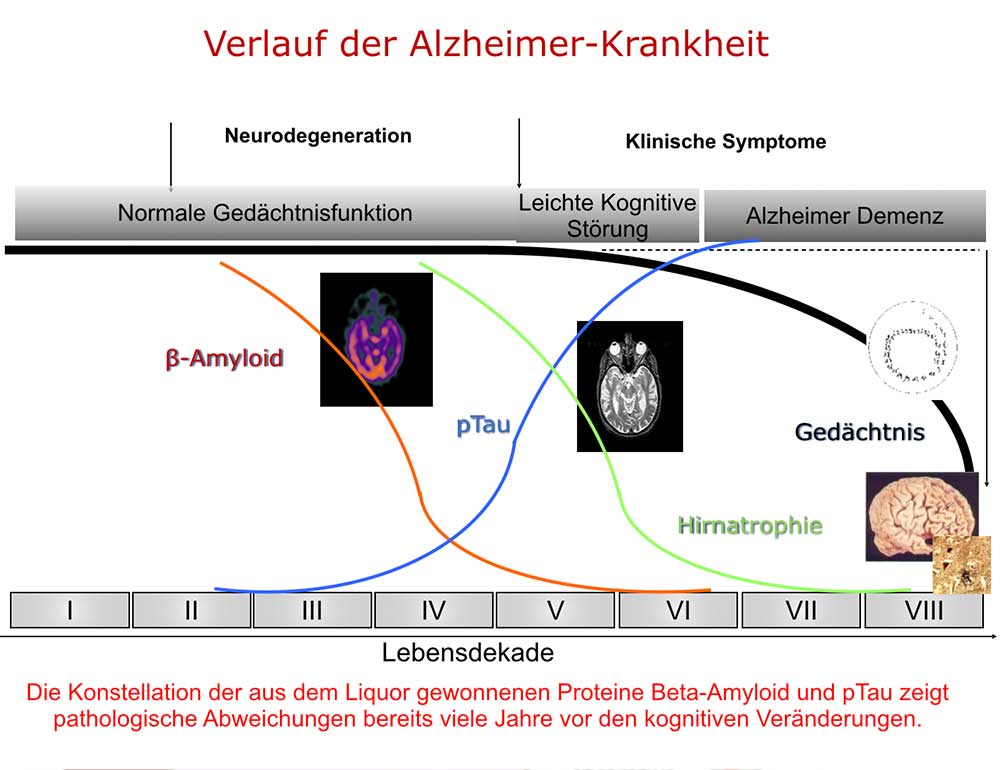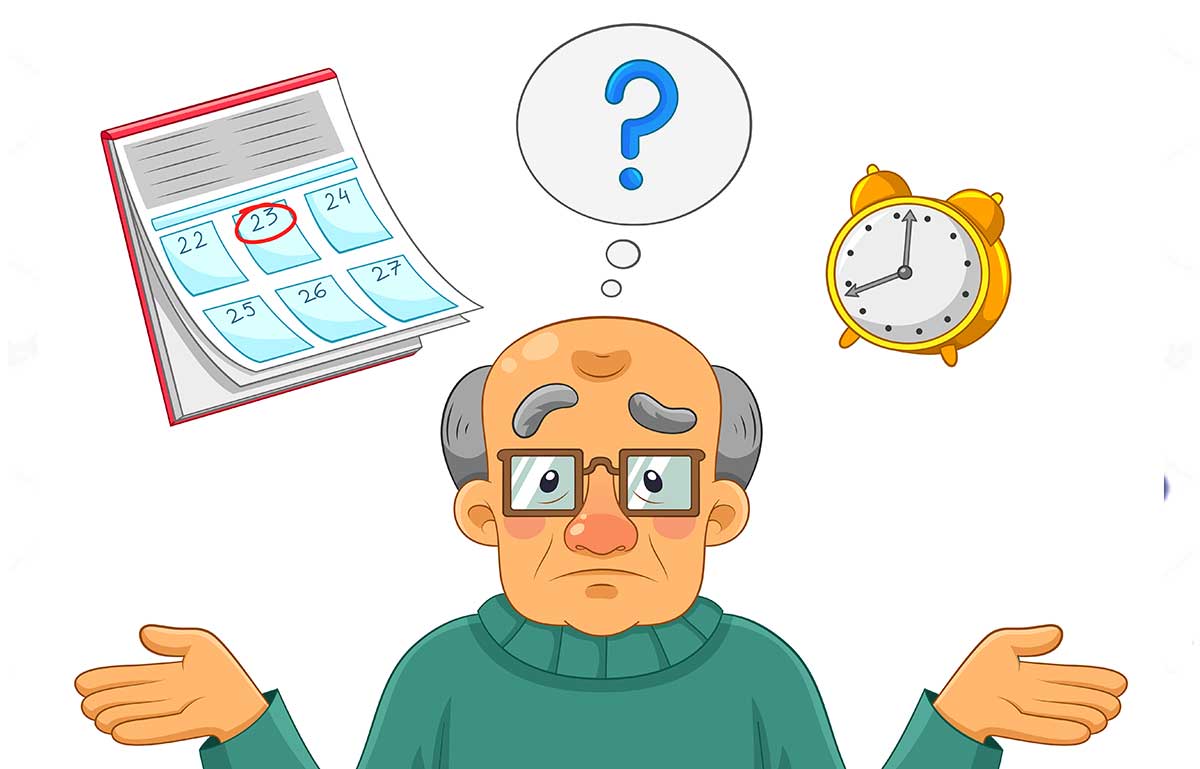Dementia
Dementia is the progressive loss of cognitive and intellectual abilities as a result of an acquired disease of the brain in people who previously had an unremarkable mental development. The reduction in cognitive performance inevitably entails an increasing decline in everyday, occupational and social activities. The frequency of dementia increases at an older age.
The American Institute on Aging has formulated seven warning signs that may indicate incipient Alzheimer's disease, and which should induce people in the immediate environment to seek medical advice:
- The ill person repeats the same question over and over again.
- The ill person tells the same short story over and over again.
- The ill person no longer knows how everyday activities, such as cooking, playing cards, handling the remote control, work.
- The ill person has forgotten how to handle money, transfers, bills and the like safely.
- The ill person no longer finds many objects or puts them in unusual places (unintentional hiding) and suspects other people of having taken away the missing object.
- The ill person persistently neglects his/her appearance, but denies it.
- The ill person answers questions repeating the question put to him/her.
 Early detection of a certain protein constellation in the cerebrospinal fluid (CSF) by means of a cerebrospinal fluid puncture (s. below) can be achieved many years before the occurrence of the first symptoms. This will allow prophylactic measures to be taken at an early stage. Physical and mental training are important for the prevention of a dementia process. New studies have shown that a deterioration of the brain can be achieved by a special combination of nutritional supplements (Soininen H, Solomon A, Visser PJ, et al. 36-month LipiDiDiet multinutrient clinical trial in prodromal Alzheimer’s disease. Alzheimer’s Dement. 2021; 17:29–40. Link: https://doi.org/10.1002/alz.12172).
Early detection of a certain protein constellation in the cerebrospinal fluid (CSF) by means of a cerebrospinal fluid puncture (s. below) can be achieved many years before the occurrence of the first symptoms. This will allow prophylactic measures to be taken at an early stage. Physical and mental training are important for the prevention of a dementia process. New studies have shown that a deterioration of the brain can be achieved by a special combination of nutritional supplements (Soininen H, Solomon A, Visser PJ, et al. 36-month LipiDiDiet multinutrient clinical trial in prodromal Alzheimer’s disease. Alzheimer’s Dement. 2021; 17:29–40. Link: https://doi.org/10.1002/alz.12172).
A frequent cause of dementia is Alzheimer's disease and poor blood supply to the brain (vascular dementia), but there is also a series of other diseases that can be the cause of dementia. A series of standardized tests can be used to determine whether a cognitive performance disorder, such as increased forgetfulness, is a result of dementia-related brain disease.
The therapy of dementia primarily depends on the cause: If dementia is the consequence of another disease, such as an infection, a metabolic disorder or depression, it can be treated as part of the treatment of this underlying disease. In the meantime, however, there are also pharmacological therapies for Alzheimer's disease and vascular dementia which, although they do not lead to a cure, do effectively delay the decline in cognitive performance.
The course of the disease is divided into different stages, each of which focuses on other physical and mental limitations.





